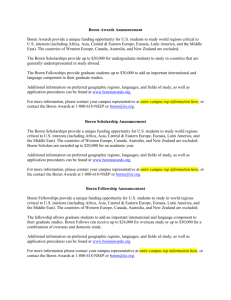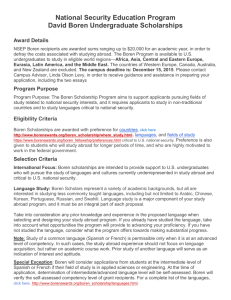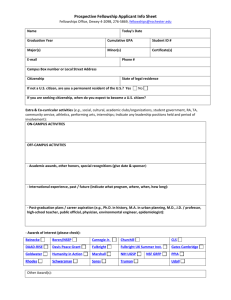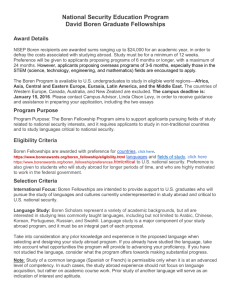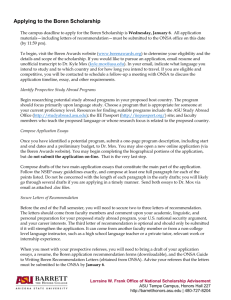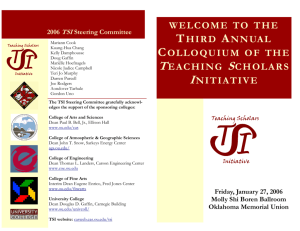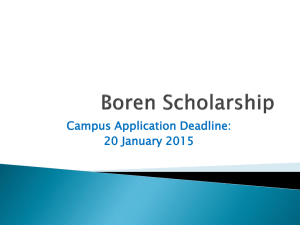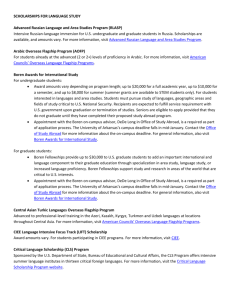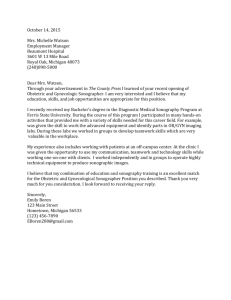The Perfect Match W
advertisement
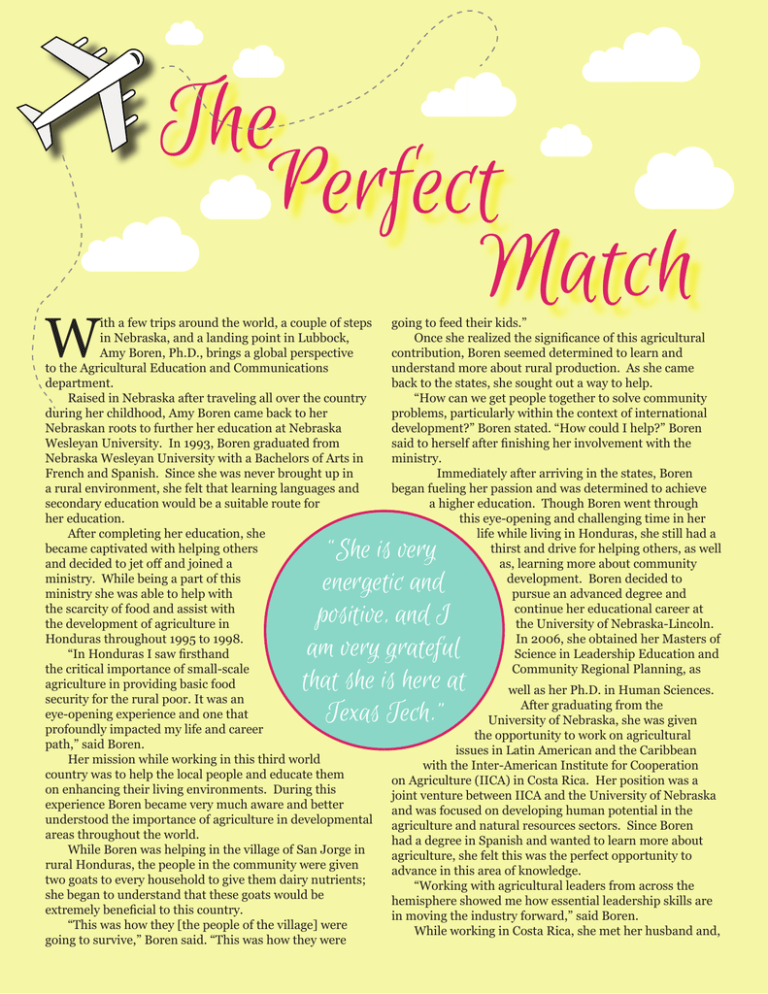
W The Perfect Match ith a few trips around the world, a couple of steps in Nebraska, and a landing point in Lubbock, Amy Boren, Ph.D., brings a global perspective to the Agricultural Education and Communications department. Raised in Nebraska after traveling all over the country during her childhood, Amy Boren came back to her Nebraskan roots to further her education at Nebraska Wesleyan University. In 1993, Boren graduated from Nebraska Wesleyan University with a Bachelors of Arts in French and Spanish. Since she was never brought up in a rural environment, she felt that learning languages and secondary education would be a suitable route for her education. After completing her education, she became captivated with helping others and decided to jet off and joined a ministry. While being a part of this ministry she was able to help with the scarcity of food and assist with the development of agriculture in Honduras throughout 1995 to 1998. “In Honduras I saw firsthand the critical importance of small-scale agriculture in providing basic food security for the rural poor. It was an eye-opening experience and one that profoundly impacted my life and career path,” said Boren. Her mission while working in this third world country was to help the local people and educate them on enhancing their living environments. During this experience Boren became very much aware and better understood the importance of agriculture in developmental areas throughout the world. While Boren was helping in the village of San Jorge in rural Honduras, the people in the community were given two goats to every household to give them dairy nutrients; she began to understand that these goats would be extremely beneficial to this country. “This was how they [the people of the village] were going to survive,” Boren said. “This was how they were going to feed their kids.” Once she realized the significance of this agricultural contribution, Boren seemed determined to learn and understand more about rural production. As she came back to the states, she sought out a way to help. “How can we get people together to solve community problems, particularly within the context of international development?” Boren stated. “How could I help?” Boren said to herself after finishing her involvement with the ministry. Immediately after arriving in the states, Boren began fueling her passion and was determined to achieve a higher education. Though Boren went through this eye-opening and challenging time in her life while living in Honduras, she still had a thirst and drive for helping others, as well as, learning more about community development. Boren decided to pursue an advanced degree and continue her educational career at the University of Nebraska-Lincoln. In 2006, she obtained her Masters of Science in Leadership Education and Community Regional Planning, as “She is very energetic and positive, and I am very grateful that she is here at Texas Tech.” well as her Ph.D. in Human Sciences. After graduating from the University of Nebraska, she was given the opportunity to work on agricultural issues in Latin American and the Caribbean with the Inter-American Institute for Cooperation on Agriculture (IICA) in Costa Rica. Her position was a joint venture between IICA and the University of Nebraska and was focused on developing human potential in the agriculture and natural resources sectors. Since Boren had a degree in Spanish and wanted to learn more about agriculture, she felt this was the perfect opportunity to advance in this area of knowledge. “Working with agricultural leaders from across the hemisphere showed me how essential leadership skills are in moving the industry forward,” said Boren. While working in Costa Rica, she met her husband and,
